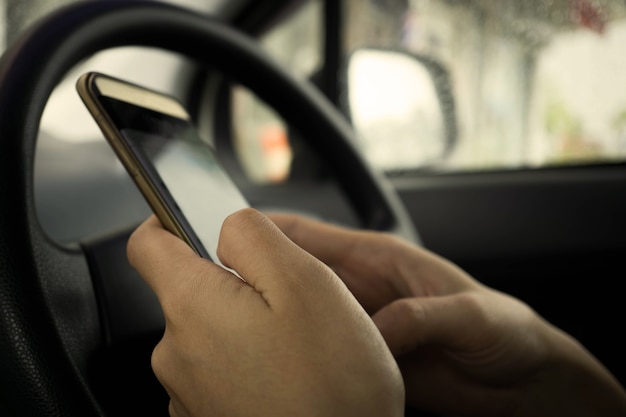
- #HANDS FREE TEXTING IN CAR DRIVERS#
- #HANDS FREE TEXTING IN CAR DRIVER#
- #HANDS FREE TEXTING IN CAR FULL#
After all, these types of hands-free laws keep our roadways inherently safer. With ever-changing laws on this hotly debated topic, more and more states are likely to follow suit with stricter regulations. Montana is the only state with no laws restricting cell phone use while driving.
#HANDS FREE TEXTING IN CAR FULL#
While the above-listed states have full bans on using any handheld device while driving, other states have less-strict laws regarding handheld devices. States With Other Cell Phone or Handheld Device Restrictions
#HANDS FREE TEXTING IN CAR DRIVERS#
states (plus the District of Columbia) have a ban on using handheld devices for all drivers anytime they are behind the wheel. Which States Have Hands-Free Driving Laws?Īccording to the National Conference of State Legislators (NCSL), as of January 2022, 24 U.S.

Read on to learn what states are hands-free. It takes the driver’s hands, eyes, and mind off the road.

Texting or dialing the phone can cause physical, mental, and visual distractions. The goal of enacting all of these laws is to help drivers remain focused on the road when they are behind the wheel. Most states also have laws against texting and driving.

#HANDS FREE TEXTING IN CAR DRIVER#
They either have a hands-free ban in place for all drivers or have a law that applies to some drivers or when a driver is in a certain situation. (1) Officers of this state or of any county, city, or town charged with the enforcement of the laws of this state, or federal law enforcement officers when in the actual discharge of their official duties (2) Campus police officers and public safety officers, as defined by § 49-7-118, when in the actual discharge of their official duties (3) Emergency medical technicians, emergency medical technician paramedics, and firefighters, both volunteer and career, when in the actual discharge of their official duties (4) Emergency management agency officers of this state or of any county, city, or town, when in the actual discharge of their official duties (5) Persons using a wireless telecommunications device to communicate with law enforcement agencies, medical providers, fire departments, or other emergency service agencies while driving a motor vehicle, if the use is necessitated by a bona fide emergency, including a natural or human occurrence that threatens human health, life, or property (6) Employees or contractors of utility services providers acting within the scope of their employment and (7) Persons who are lawfully stopped or parked in their motor vehicles or who lawfully leave standing their motor vehicles.Most states have passed laws that limit telephone use while behind the wheel. This section does not apply to the following persons:


 0 kommentar(er)
0 kommentar(er)
